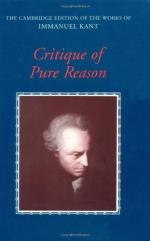|
This section contains 13,263 words (approx. 45 pages at 300 words per page) |

|
SOURCE: "The Categorical Imperative and Kant's Conception of Practical Rationality," in The Monist, Vol. 72, No. 3, July, 1989, pp. 384-410.
In this essay, Reath traces Kant's derivation of the moral law from his conception of practical rationality.
1. Introduction
The primary concern of this paper is to outline an explanation of how Kant derives morality from reason. We all know that Kant thought that morality comprises a set of demands that are unconditionally and universally valid (valid for all rational beings). In addition, he thought that to support this understanding of moral principles, one must show that they originate in reason a priori, rather than in contingent facts about human psychology, or the circumstances of human life.1 But do we really understand how he tries to establish that moral principles originate in reason? In at least two passages in the second section of the Groundwork, Kant insists upon the importance of...
|
This section contains 13,263 words (approx. 45 pages at 300 words per page) |

|


